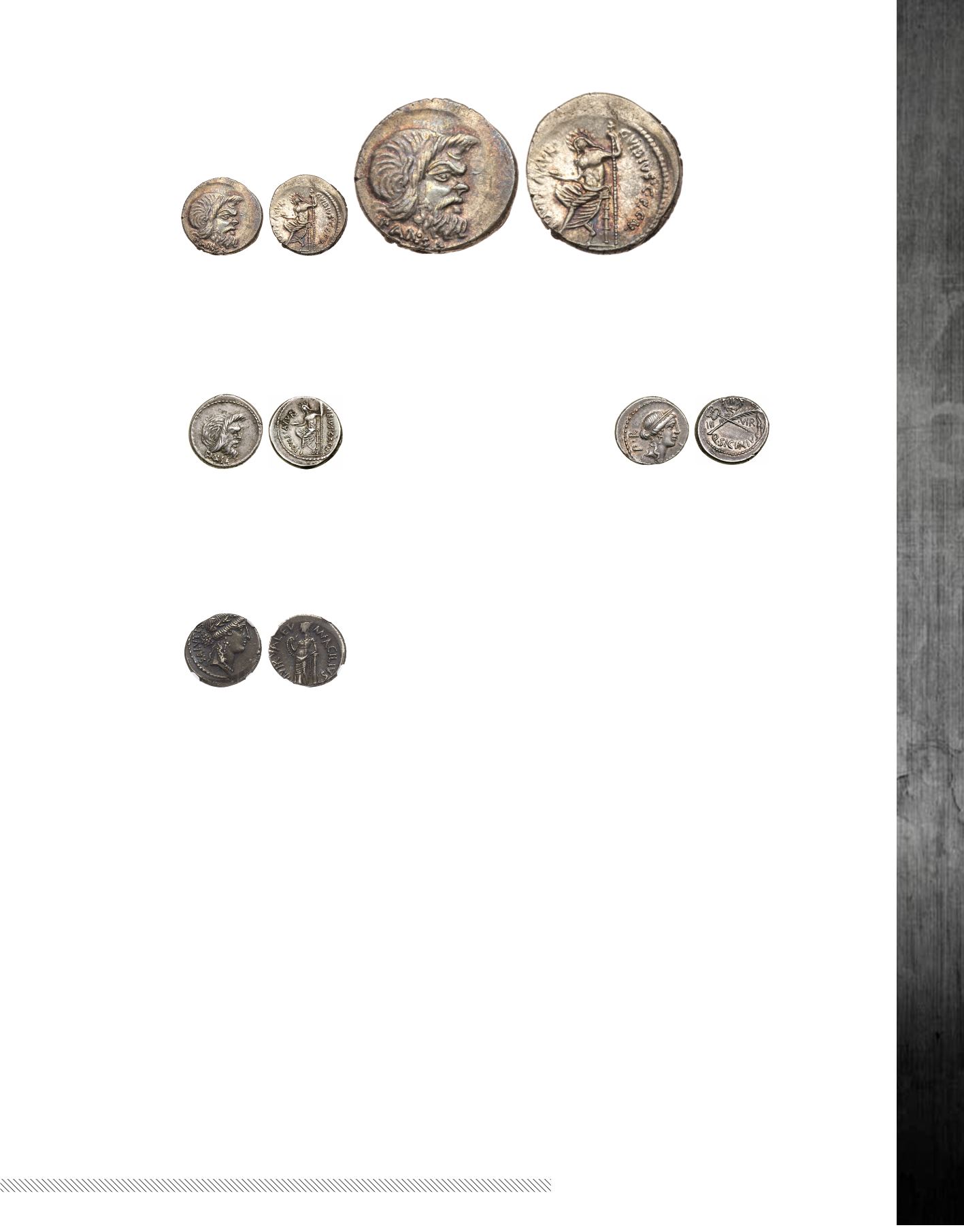

158
bid online at
www.goldbergcoins.com(800) 978-COIN (2646)
|
Ancient Coins
Enlargement
1981 C. Vibius C.f. C.n. Pansa Caetronianus. Silver Denarius (4.07 g), 48 BC
. Rome. PANSA below, mask of Pan right.
Reverse:
C VIBIVS C F C
N IOVIS AXVR, Jupiter Axurus (or Anxurus) seated left, head facing, holding patera and scepter. Crawford 449/1a; HCRI 20; Sydenham 947; Vibia
18. Delicate iridescent toning.
Superb Extremely Fine
.
Estimate Value ............................................................................................................................................................................ $700 - 800
From The Herbert & Aphrodite Rubin Collection; Purchased privately from Ariadne Galleries in the 1970s-1980s.
1982
C. Vibius C.f. C.n. Pansa Caetronianus. Silver Denarius
(4.07 g), 48 BC
. Rome. PANSA below, mask of Pan right.
Reverse:
[C] VIBIVS C F C N IOVIS AXVR, Jupiter Axurus (or
Anxurus) seated left, head facing, holding patera and scepter.
Crawford 449/1a; HCRI 20; Sydenham 947; Vibia 18. Nicely
toned.
Choice Very Fine
.
Estimate Value ..................................................... $250 - 300
1983
Mn. Acilius Glabrio, Silver Denarius (4.08 g), 49 BC
. Lau-
reate head of Salus right, SALVTIS behind.
Reverse:
MN
ACILIVS III VIR VALETV, Valetudo standing lefet holding snake
and resting on column. Craw. 442/1; Sear 412; RSC
Acilia
8, 8a.
Toned.
NGC graded AU; Strike: 4/5, Surface: 4/5
.
Estimate Value ..................................................... $200 - 250
1984
Q. Sicinius. Silver Denarius (3.74 g), 49 BC
. Rome. [FORT]
P R, diademed head of Fortuna Populi Romani right.
Reverse:
III VIR across field, Q SICINIVS, crossed palm branch and cadu-
ceus; above, wreath. Crawford 440/1; HCRI 410; Sydenham
938; Sicinia 5. Nicely toned.
Choice Very Fine
.
Estimate Value ......................................................$250 - 300
Little is known of the moneyer Q. Sicinius, and his family, while
noble, was not a driving force in Roman politics. The types of
the coin show that he sided with Pompey after Caesar crossed
the Rubicon. The obverse depicts the head of the Fortune of the
Roman People, and the symbols on the reverse all reference
Pompey' s accomplishments: the palm for his many victories,
the wreath that was awarded him by the Senate specifically for
his defeat of Mithradates VI in 63 BC, and the caduceus for his
defeat of the Cilician pirates. This was the last normal issue of
denarii before Caesar' s occupation of Rome, at which time
Sicinius fled east along with the rest of the Pompeians.



















